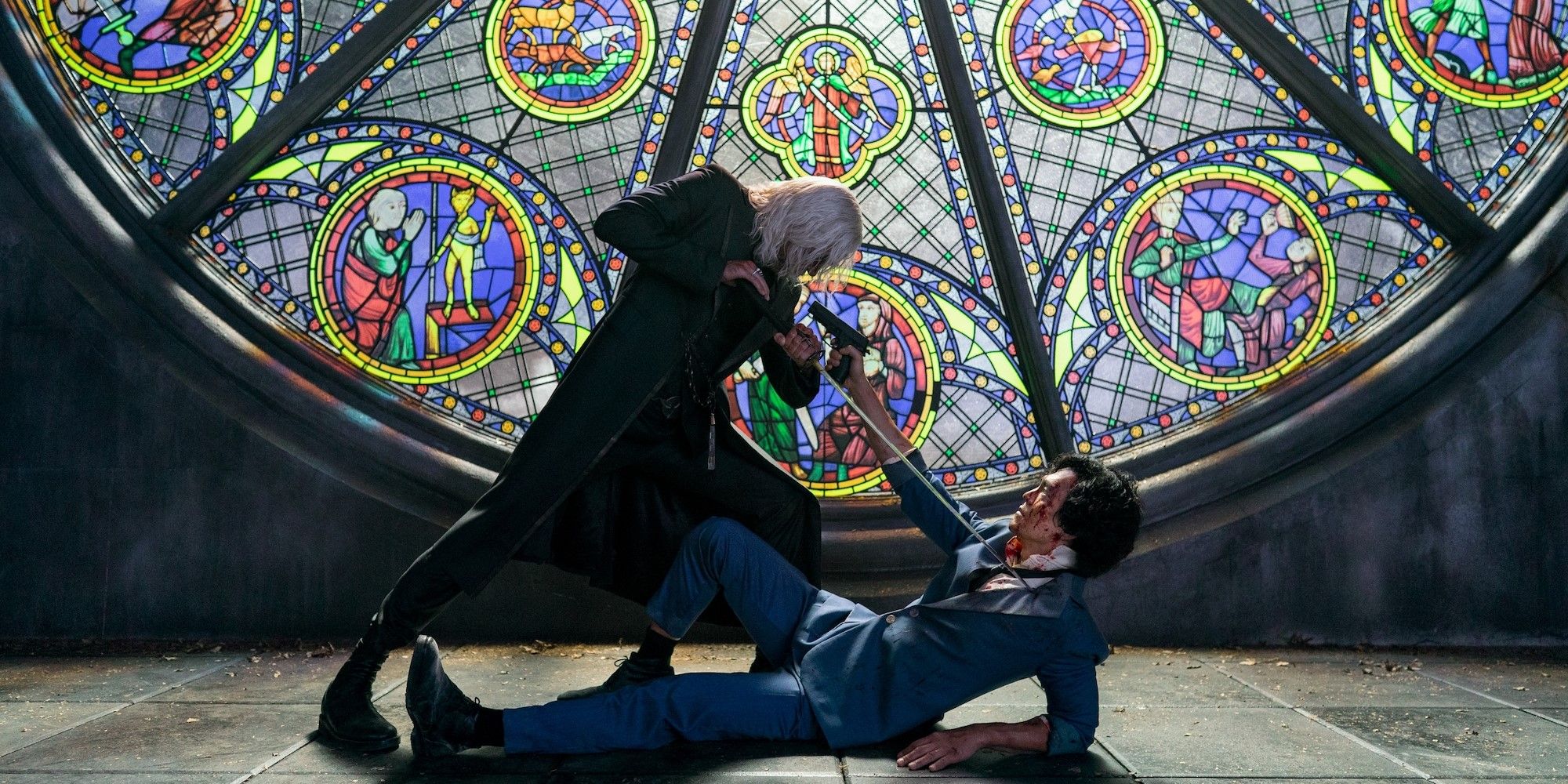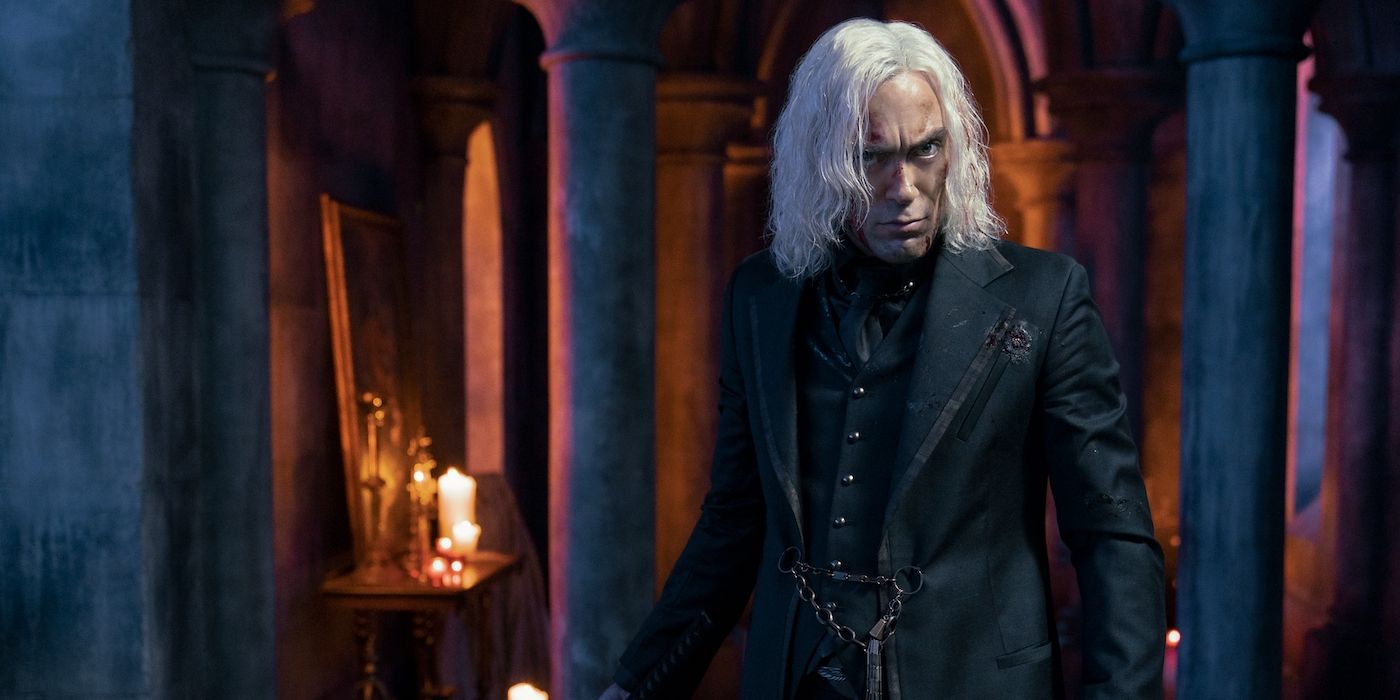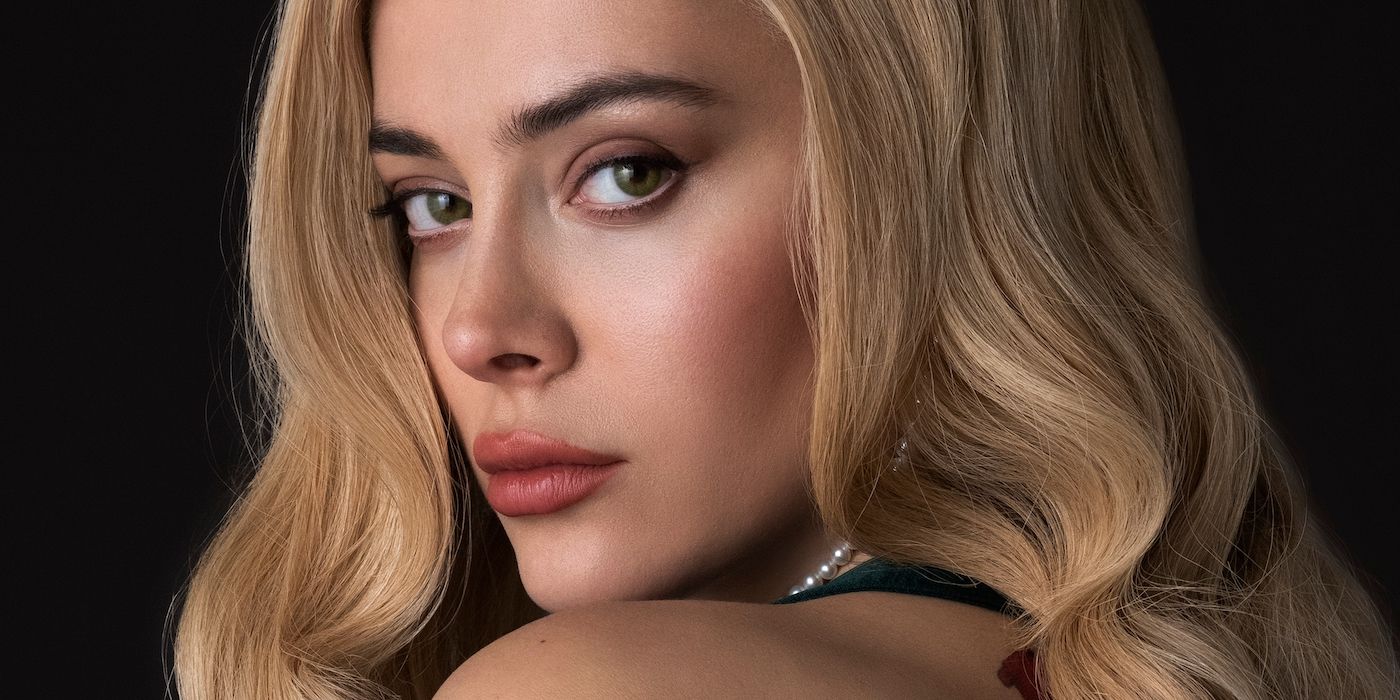One of the most memorable parts of the classic '90s anime Cowboy Bebop is the recurring element of protagonist Spike's mysterious past. Ever-present in the back of Spike's mind as well as the plot, the details of Spike's time with the Red Dragon Crime Syndicate are left vague at best; he had a relationship with a woman named Julia and a fellow criminal named Vicious, both of which went sour for unspecified reasons, and eventually he left the Syndicate. In stark contrast to how shows now feel the need to explain everything, exact details of any time in Spike's life before the start of the series are never really given, leaving his endless run from the past he doesn't want to face more metaphor than not.
Netflix's live-action reimagining of Cowboy Bebop, on the other hand, completely abandons the original's dream-like portrayal of Spike's (John Cho) life, opting instead to make it the central element that ties almost every episode together. Where the original series was an episodic affair following the crew of the Bebop on a variety of mostly independent adventures, Netflix's Cowboy Bebop finds a way to put Spike's old rival Vicious (Alex Hassell) everywhere. Each drug deal gone wrong, terrorist plot, or outlaw on the run is somehow tied back to Vicious and the Syndicate. Even if they're not directly involved in the current goings-on of an episode, it will still cut away to Vicious and Julia (Elena Satine), forever plotting to find another way to get in Spike's way. Their relationship is much more detailed, too, with Spike and Julia's romantic relationship being explicitly the betrayal of Vicious that caused the trio to break up.
It's understandable why the writers of Netflix's go at this story would feel inclined to bring Vicious more to the forefront. Cowboy Bebop doesn't come pre-packaged with an easy-to-grasp hook that would keep people's eyes glued to the screen, letting Netflix's autoplay go on until it runs out of episodes. Placing Vicious into every corner of the plot gives viewers a motive to binge, to find out more about Spike, Vicious, Julia, and the Syndicate. It requires inventing a whole lot of lore where there was once none and, by forcing everything to be connected, erodes the original's celebration of life's fleeting joys and losses, but it does the job of making it more bingeable. In addition, Hassell's Vicious absolutely steals the show, at least in part because of how much freedom he has to interpret his character. Where the rest of the cast feels somewhat tied down by expectations that they look and act like their anime counterparts, Vicious has so little in the way of characterization in the anime that Hassell's version of him is allowed to be emotive and, frankly, entertaining beyond what might have been thought possible before.
In fairness, it also doesn't come from a place of misunderstanding the original show's intentions. Every character in Cowboy Bebop is running from a past they don't want to acknowledge in their own ways, and between all the heists and chases, that thematic throughline keeps the series feeling like the same show with the same characters no matter what mood or setting it might choose that week. Since Spike's tumultuous past is such an important part of his character and the show's ideas as a whole, wanting to explore that part of him more thoroughly is a natural inclination. And it's not like the ways the Netflix show chooses to elaborate on his backstory are without reason; Spike's history is up to interpretation, and Netflix's choices feel like reasonable elaborations on what we're given to work with. The intricacies of anime Bebop's story are vague, but not unknowable, and choosing to center this adaptation on the corners of the story that were previously unexplored goes some way to making it feel like it has a purpose beyond simply translating the cartoon to a new medium.
What it does miss, though, is much more important: why the original show chose to keep the specifics of Spike's backstory so vague in the first place, and what is lost by over-explaining it. Spike's feelings of guilt with Vicious and Julia in the anime are perfectly expressed through dream-like imagery; when the viewer watches Spike beat himself up over decisions long since made, the vagueness of his regrets encourages them to see their own pasts in his. In the live-action show, Spike's history is explained so thoroughly that it's difficult to relate to. At one point, Spike literally says "I'm the orphan," a detail that can be inferred but is never confirmed in the original show; it thus becomes unmistakably his story, with no room for interpretation. In the anime, though, Spike's feelings are universal. Everyone has unfinished business they'd rather not have to think about, people they wish they could see one more time, and actions they wish they could take back. The anime gives us just enough in not only Spike but every character to see ourselves in, while holding back just enough to avoid getting bogged down by its own lore, creating a perfect recipe for emotional resonance that keeps the show feeling fresh no matter how much time passes.
By making Vicious and Julia recurring characters that show up again and again, telling us more about the Syndicate and Spike's past sins than the anime ever deemed necessary, Netflix's version does a disservice to its own themes and characters. Vicious goes from being a specter haunting Spike's conscience to a cackling mastermind, and in turn loses the mystique that made him so compelling in the first place. Everyone has an anime Vicious in their life, a representation of their mistakes and regrets, but few have the mustache-twirling villain Netflix's Vicious becomes, and that change does more damage to the strength of Cowboy Bebop's structure than anything else. Simply put, some things are better left unsaid, and that kind of restraint is a key element of Cowboy Bebop that is totally lost on this modern re-imagining of the beloved series. They should have just left Vicious alone.



